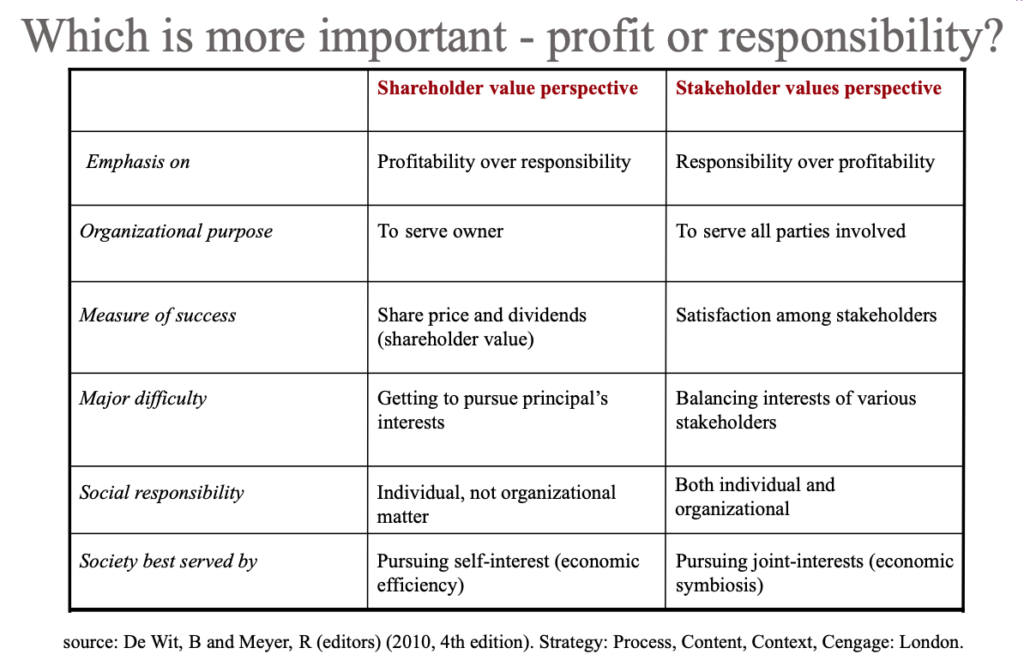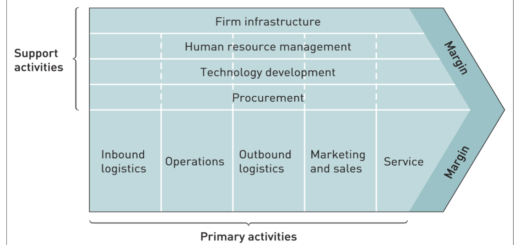Priorities of Business: Profit & Responsibilities
From a stakeholder’s perspective, responsibility is often seen as more important than profit, while from a shareholder’s perspective, profit is the primary goal. Here are some arguments for each perspective:

Stakeholder perspective:
- Social welfare: For stakeholders such as customers, employees, and communities, the social welfare impact of a company’s operations is often more important than its profit. They may be more likely to support a company that is transparent, sustainable, and accountable to the society and environment it operates in.
- Long-term sustainability: Stakeholders are more likely to support a company that prioritizes long-term sustainability goals over short-term profit. They may view a company that invests in sustainability as a better long-term investment.
- Reputation: Stakeholders are more likely to support a company with a good reputation for social and environmental responsibility. A positive reputation can lead to increased customer loyalty and employee engagement, as well as positive media coverage.
Shareholder perspective:
- Financial return: For shareholders, the primary goal is usually to maximize financial return on investment. They may be more likely to support a company that prioritizes profit over responsibility.
- Legal obligations: Shareholders may argue that companies have a legal obligation to maximize shareholder value, and that other goals such as responsibility should be secondary.
- Risk management: Shareholders may argue that focusing on profit is necessary for effective risk management. They may view a company that prioritizes social and environmental responsibility as more likely to take on unnecessary risks.
Overall, while there are valid arguments for both perspectives, the most effective approach may be to find a balance between profitability and responsibility. A company that prioritizes both can achieve financial success while also making a positive impact on society and the environment.



